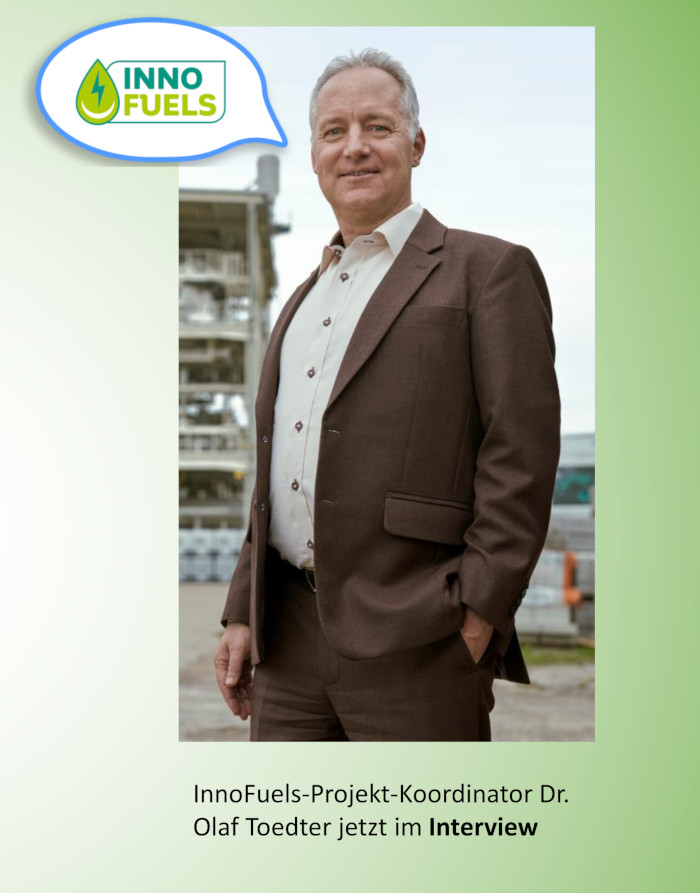This is how InnoFuels will continue in 2025
New workshops, exciting studies and international networking - InnoFuels starts 2025 full of energy! How can renewable fuels be ramped up? What are the next steps? An interview with project coordinator Dr. Olaf Toedter provides exciting insights into the vision and the next milestones.
The InnoFuels project has been running since February 2023. How far have you got with your tasks so far?
InnoFuels is a joint project with many partners. At the beginning, of course, there was the challenge of getting the project up and running and familiarizing the partners with each other. This has now been achieved. One important result, for example, is the development of cross-thematic workshops: Originally, we focused on specific issues in individual workshops. However, through continuous exchange and close cooperation, we have been able to create formats that combine different focal points and deal with broader topics. These workshops not only promote deeper collaboration, but also help to tackle complex challenges holistically.
The project structure is based on a matrix with seven focus areas. Has this model proved its worth?
Absolutely. A topic as complex as fuels requires both in-depth technical expertise in specific focus areas and a strong network that links these topics together. A key unifying factor here is platform coordination, but also the way we work together. This includes how we organize the workshops, discuss and work out the results together and finally communicate them. The structure has therefore proven to be extremely effective.
What are the next steps in the project?
We are working on developing measures that link different technologies and applications. The initial aim is to identify potential for new business areas within the existing regulatory framework. At the same time, we want to consider international networking and possible further developments in regulation in order to roll out future-proof business models.
Can you give us a specific example of such links?
Methanol-based technologies are a good example: There are already established applications in the industry for certain fuel fractions such as gasoline. There are also new applications, such as for jet fuel. These processes must be considered in combination. The same applies to Fischer-Tropsch fractions. In both cases, it is likely that we will have to import essential intermediate products - for example from so-called favorable locations with a surplus of sun and wind. Electrolysis and fuel synthesis can be operated economically there. The intermediate products such as methanol or Fischer-Tropsch oil are then imported, processed here and refined in combination.
That sounds complex. What role do by-products play in this?
When we synthesize fuels, co-products inevitably arise - sometimes to a greater extent, sometimes to a lesser extent, depending on the process selectivity. The challenge is to assign a significant greenhouse gas-reducing value to all products, including by-products. This not only has an impact on production costs, but ultimately also determines the profitability of the business models.
%20KIT_Markus%20Breig%20und%20Amadeus%20Bramsie-3.jpg)
